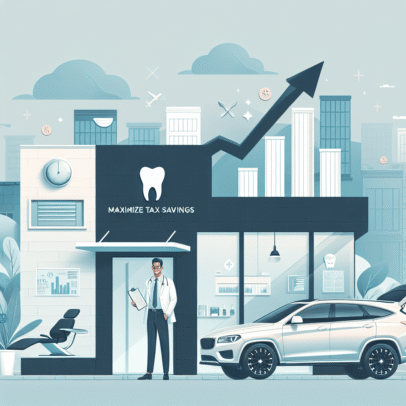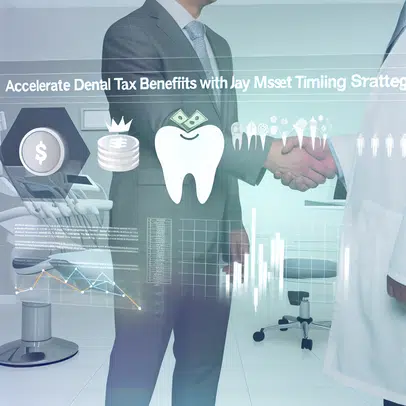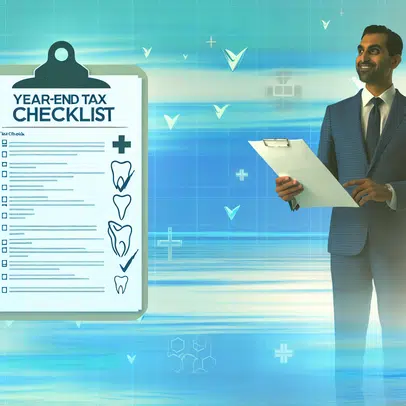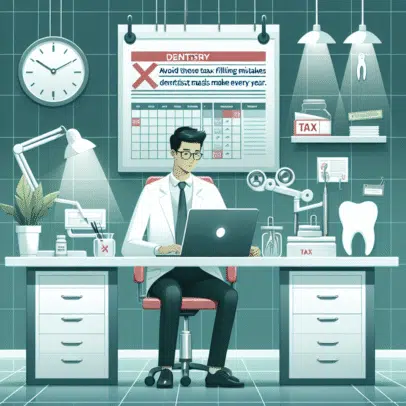Maximize Tax Savings Using Vehicles in Your Dental Practice
Running a dental practice comes with plenty of expenses—dental equipment, office rent, supplies, wages…the list goes on. But did you know that your car, truck, or SUV could actually help reduce your tax bill? If you’re a dentist or dental practice owner, you might be missing out on valuable tax savings by not using your vehicle the right way.
How Vehicles Can Cut Your Tax Bill
Using vehicles for business purposes isn’t just convenient—it can be a strategic tax-saving opportunity. The IRS allows deductions for business-related vehicle use. If you or your employees use a car to drive to meetings, pick up supplies, or visit labs, those miles—or even the entire vehicle—may qualify for deductions.
Two Main Tax Deduction Methods
The IRS offers two methods for deducting vehicle use:
- Standard Mileage Rate: You deduct a set amount per mile driven for business purposes. For 2024, that rate is 65.5 cents per mile.
- Actual Expense Method: You deduct the actual costs of operating your vehicle, like gas, oil changes, repairs, insurance, and depreciation.
Which method is best? It depends on how much you drive and what kind of vehicle you own. If you don’t want to track every receipt, the standard mileage rate might be for you. Otherwise, the actual expense method could lead to bigger deductions if your costs are high.
Buy a Vehicle Through Your Dental Practice
If your dental practice is structured as an LLC, S-Corp, or C-Corp, you might be able to purchase a vehicle under the business’s name. That opens the door to additional tax strategies, including the Section 179 Deduction and Bonus Depreciation.
Section 179 Deduction
This allows you to write off a large portion of your vehicle’s cost in the year you buy it—as long as it’s used more than 50% for business. SUVs and trucks often qualify because of their weight. Think of it as getting a “bulk discount” from the IRS when you invest in a work-related vehicle.
Bonus Depreciation
This is like turbocharging your deduction. As of 2024, you can write off up to 60% of the vehicle’s cost through bonus depreciation. That’s on top of Section 179! Combined, these can bring major first-year tax savings for dentists who need reliable transportation.
Real-Life Example
Let’s say Dr. Smith purchases a used SUV for $45,000, which she uses 90% of the time for business. Her CPA suggests claiming both Section 179 and bonus depreciation. By doing so, she saves nearly $35,000 in deductions—all in the first year. That’s a real win for her practice’s bottom line!
Tips to Stay Compliant
- Keep a mileage log. Apps like MileIQ or a simple notebook can do the trick.
- Only deduct business-related travel. Driving to and from your home and office isn’t deductible.
- Work with a dental-focused CPA. They’ll understand unique tax rules for dentists and help you maximize your return.
Final Thoughts
If you’ve been driving your personal car for business without tracking expenses or mileage, you’re leaving money on the table. With the right strategy, you can turn your vehicle into a tax-saving tool for your dental practice. Whether you opt for a new work SUV or simply log your miles better, you’re driving toward real savings.
Start looking at your vehicle as part of your practice—not just a way to get from A to B. Because when used wisely, it can take you further… even on your taxes.




